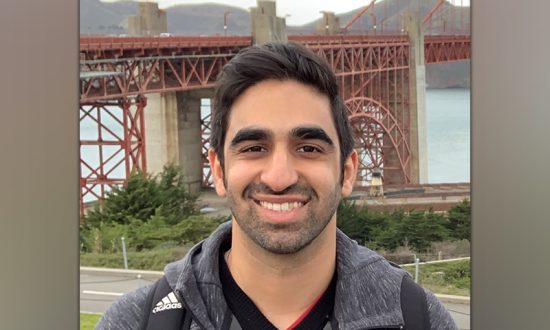Aditya Kaicker, Co-Founder & Chief Program Officer, Breathe Well-being is an ACE certified health coach and an experienced entrepreneur who comes with a strong background in technology and in-depth knowledge of the health, wellness and fitness space. At Breathe Well-being, Aditya leads the entire program-product, technology and content team responsible for creating their digital therapeutics program.
The previous decade has seen an explosion of technology applications across industries, including healthcare. Digital health is becoming more prevalent in society with the growing number of smartphones (an estimated 750M+ people in India have access to smartphones), social media platforms, wearable IoT (Internet of Things) devices, telehealth and software. As these tools scale and healthcare technology adoption penetrates the population further, data becomes key for the future.
Health and wellness apps focus on real-time monitoring of its users and produce vast amounts of lifestyle data. This could include activity patterns, eating habits, fitness routines, sleep cycles, water intake and many other data points. This lifestyle data may be used to create models of the user’s digital being and companies can offer relevant products or services as per the user’s needs and interests. The users are happy to share this data with the platforms freely because the platforms are able to provide real-time value and engagement, for example, through social competitions and gamification.
Digital Therapeutics (DTx) is that branch under Digital Health which can deliver interventions to treat medical conditions for patients through similar data collection, processing and value-creation. DTx is defined as an evidence-based software or digital tool used for the treatment of patients through frequent communication, remote monitoring, education, coaching and care coordination.
Modern society and its many conveniences have given rise to a plethora of lifestyle diseases and chronic conditions. In India, 77 million adults suffer from Diabetes, and this number is estimated to reach 130M+ by 2045. Close to 30% of Indians suffer from Hypertension, according to estimates. One in 4 deaths in India happen due to cardiovascular diseases. A large chunk of these cases remains undiagnosed due to lack of awareness and availability of tools. Once diagnosed, the treatment options for these diseases are expensive and not available as freely. Chronic diseases, with their comorbidities and risk of further complications place a tremendous amount of burden on the healthcare system and budget. This risk and burden are continuously rising, with no signs of slowing down. There is a need for effective and inexpensive solutions that can be conveniently available to the masses.
DTx is especially very useful in chronic disease (such as Diabetes, Hypertension, Obesity and Nonalcoholic fatty liver disease) care as they require a “high-touch” round-the-clock approach over a long period, generally not feasible in a face-to-face environment of a physical hospital or clinic. A personalized approach can be taken for each patient to meet their tailored goals through real-time “nudges”, driving higher program adherence and better health outcomes. The data produced under DTx monitoring (such as blood biomarkers, medical history, diagnostic tests, medication adherence, data from wearables, etc.) along with the lifestyle data provides a comprehensive picture to the treating physician, helping them make better clinical decisions and an effective treatment plan. Additionally, since no physical spaces and face-to-face interactions are required, a lot of travel time and money can be saved, and these treatment options can be available at a fraction of the cost of a traditional treatment plan.
While many of the current solutions incorporate diet, fitness, medication adherence and real-time monitoring, a key aspect often goes ignored in the treatment plans. According to statistics, mental stress plays a contributing role in 75-90% of chronic disease cases. There is a need for incorporation of mental health modules in DTx solutions to provide even higher quality and sustainable outcomes. Digital applications of CBT (Cognitive Behavioral Therapy) can lead to promising results in the treatment of disease-related anxiety, stress, insomnia and even substance-abuse. Deeper awareness on mental health and access to coaches can also contribute to better outcomes for DTx solutions.
DTx solutions started getting traction during the beginning of the last decade, and slowly gained popularity over the years. The COVID-19 pandemic gave society a gigantic push to become aware of and adopt digital health solutions for their treatments. An increase in the amount of time spent online gave people an opportunity to discover these newer tools. Frequent lockdowns, remote work-life and lesser social interaction led to reduced activity patterns, decreased focus on fitness and higher mental stress levels, spawning a tsunami of new lifestyle disease cases. Further, the effect of COVID-19 on long-term health is largely unknown and may lead to many more cases – for example, many cases of younger people (in their 30s) with recently diagnosed Type-2 Diabetes are being observed post-COVID recovery. Lastly, since many hospitals, clinics and care centers were dedicated for COVID treatment, and many others were seeing reduced traffic due to fear in peoples’ minds of contracting COVID while on a physical visit, the need for this new generation of digital health became mainstream.
The healthcare ecosystem is closely observing the wave of solutions that have arisen in the past decade. With the patient at the center receiving treatments with higher effectiveness, each segment of the healthcare ecosystem – hospitals, doctors, pharmaceutical companies, pharmacies, health insurance, etc. – may get disrupted and have to adjust to a new reality.


